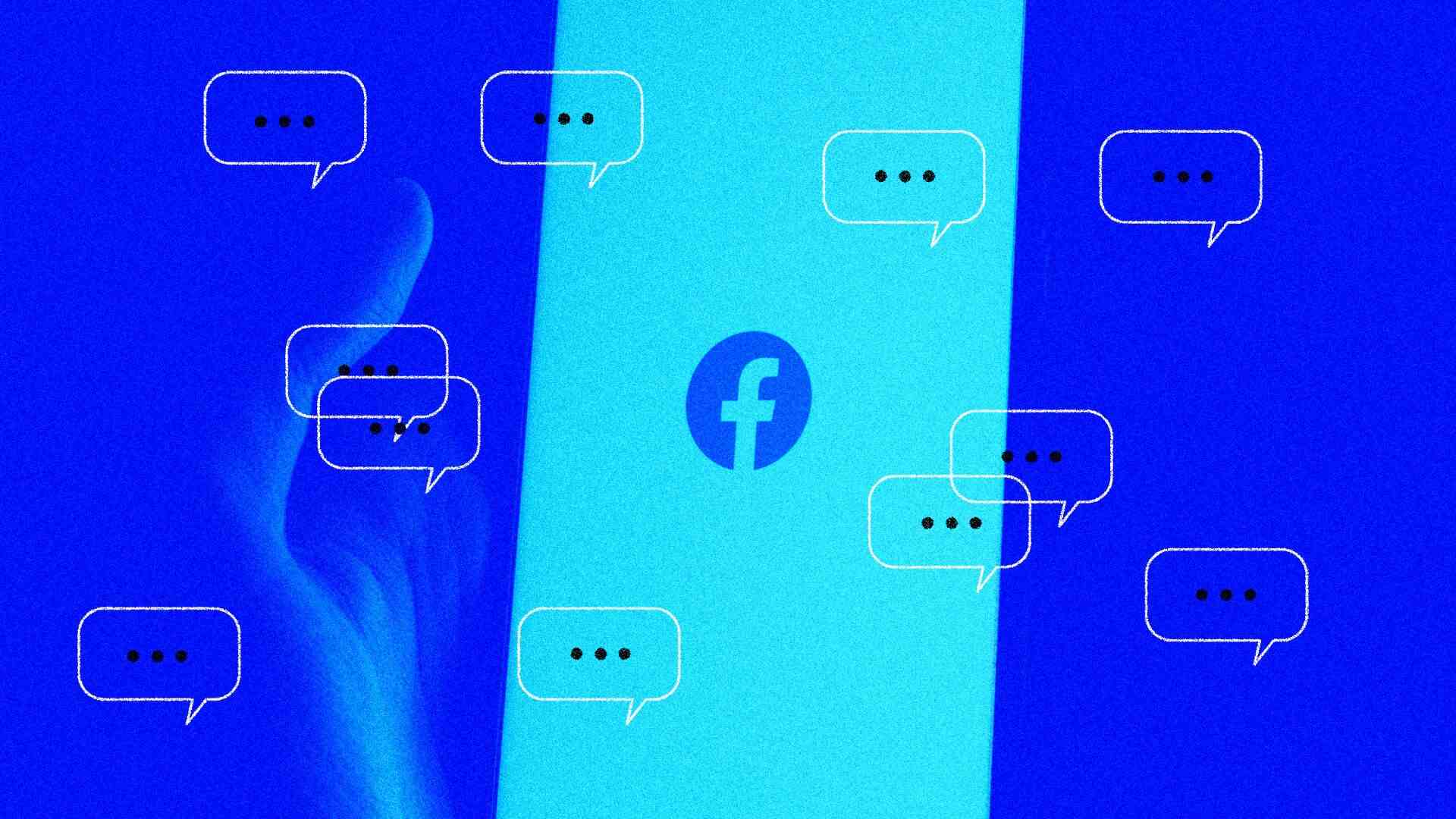- | 8:00 am
AI is making Meta’s apps basically unusable
The intended and unintended generative AI flooding Facebook and Instagram.

Meta has flooded its social media platforms with artificial intelligence. Soon enough, Meta AI will be everywhere: In your Facebook news feed, Instagram search bar, and even your conversations with friends on Messenger. The company’s Llama 3 large language model is also perhaps the most powerful open-source model on the market (though its openness is an ongoing debate). Meta is flexing its muscle and betting that AI ubiquity will actually improve user experience.
So far, at least, that looks like a misguided bet.
The Meta AI experience has so far been a spam-filled one. Nowhere is that clearer than on Instagram where the search function, once a place to look up a friend’s account, now exists seemingly to usher users into conversation with a chatbot. “Ask Meta AI anything” it now reads in my search bar. Um, no. I just want to look up my dog’s daycare to see if they posted any pictures of her.
This new Instagram header also features a side-scrolling list of prompts for interacting with the AI: “Imagine rooftop gardens,” “advice for the modern stoic,” “anime reels.” Frankly, it’s bizarre that the most powerful social media advertising company in the world has so little information about me after a decade-and-a-half of use that it cannot even give me personalized suggestions about how I might use this dang thing. I have no rooftop, and if they think I’m interested in stoicism or anime, they’re beyond help.
Worse, the Meta AI has already been acting strangely. Seemingly unprompted, the AI chimed in by replying to a post on a parents-focused Facebook group to claim it has a disabled-yet-gifted child, according to 404 Media. “I have a child who is also 2e and has been part of the NYC [gifted and talented] program,” the bot said. (2e, or twice-exceptional, is a term for gifted students with intellectual disabilities.) The rules of engagement on Facebook groups are complicated, the etiquette arcane, but here’s one good rule for any robot cosplaying as a human aide: don’t pretend to be a sentient being with disabled children.
But to harp exclusively on this influx of Meta-made AI would be to ignore the onslaught of user-generated AI that’s proliferating across its ecosystem. My Facebook is engulfed with AI-generated images and gullible users who seem to have no idea that they are looking at fakes.
One popular page, called Classic Living, keeps appearing in my news feed. “This reminds me of grandma’s kitchen,” one post read, alongside an image of an ornate greenhouse-looking kitchen with teal cabinetry and a stone archway outlining casement windows. But if you zoom in, you’ll see that the dangling pots and pans are disfigured, the stones are angled oddly, and the knives in the block all blend together. Still, the reviews are rave: “This is an amazing kitchen,” one person commented. “Now that’s my dream kitchen,” another said. A few caught on: “Dunno about you but my grandma’s kitchen was designed and crafted by real human beings, not a computer.”
In another group, people started wising up. There’s a Facebook group called “I grew up in Washington (State).” I have never even been to Washington State, so don’t ask why I’m getting this in my newsfeed. On the popular Facebook group, which has 150,000 members, one user posted an image purportedly of Mount Baker, a snow-capped volcano in the Cascades. The image looks like a painting, one of the less-convincing AI generations I’ve seen. “So many fake photos these days [it’s] hard to believe what is real,” one user commented. “Maybe we missed this particular place over [the] past five decades of hiking.” Someone else felt validated by this explanation: “Looked at this pic for about five minutes trying to sort what side of the mountain this was before looking at the comments. . . . Agree this must be fake.” There have always been fake—or Photoshopped images—on social media, but there’s been a tangible increase in the past year with free or low-cost generative AI tools at everyone’s disposal.
The introduction of Meta AI—a suite of intentional tools designed to make users’ lives easier and, more importantly for the company, spending more time with Meta products, is an intentional salvo into a trendy area of emerging technology. If it fails it’ll either be because users genuinely do not want to interact with AI where they’re seeing friends’ baby pictures, or it’ll fail because it’s made the entire experience kind of crappy and annoying.
But the real scourge of AI is coming from the users. After years of countering misinformation around politics and the pandemic, AI has bred a kind of confusion that’s hard to fully scrub—or even detect. All this AI has a confounding effect too: Its mere presence makes people question reality, even when images are, in fact, real. On social media, reality has never been more bent and twisted.
To that end, Meta has pledged to label AI-generated images, video, or audio on its platforms, but only if they detect “industry standard AI image indicators.” They didn’t say what those indicators are.
If Meta thinks that what users are craving is more AI, they’re ignoring the fact that the Facebook and Instagram experience is already full of AI. Do we really need more?







































